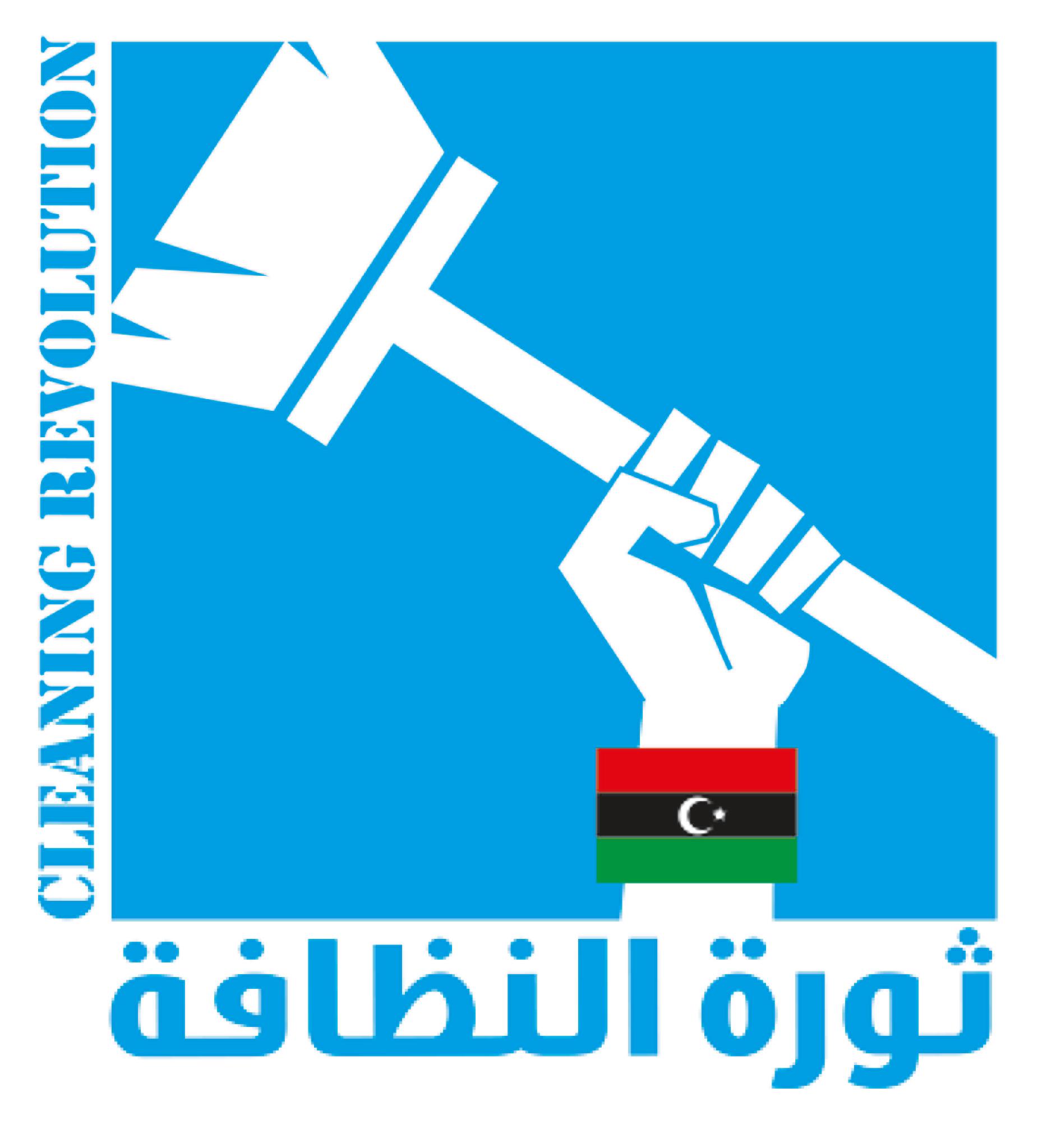By Nihal Zaroug.
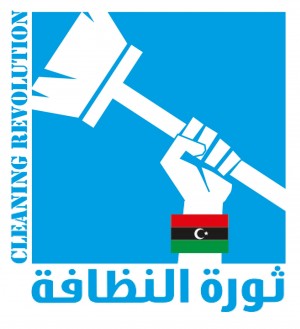
Tripoli, 17 December:
As a result of last year’s revolution, municipal works, especially waste removal services, have not fully resumed . . .[restrict]in most towns, mainly due to limited resources available to the governing local councils. Even in Libya’s two major cities, Benghazi and Tripoli, waste is still a problem and an eyesore.
In the absence of continuous services, the burden of cleaning public areas has often fallen on activists, who believe that keeping litter under control is a civic duty and part of Libya’s rebuilding process.
There are several local groups committed to removing rubbish from public spaces, such as Clean Up Revolution Libya, the umbrella group for Clean Up Tripoli and Clean Up Benghazi, which has been active and vocal in finding solutions for waste management since Libya’s liberation. The group has organised several cleaning campaigns in both cities, petitions government, and strives to educate and motivate citizens to take action against inadequately disposed rubbish.
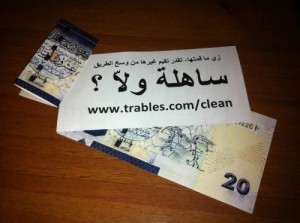
Worthy of mention is a creative initiative to make Tripoli’s streets cleaner, devised by Libyan activists Akram Al-Saadawi and Ali Tweel. Borrowing from an experiment conducted by students at the American University of Beirut, Al-Saadawi and Tweel designed mock 20 dinar bank notes to be discarded near garbage, to see if they would be picked up.
The students in Beirut asked themselves a simple question; “If we see a banknote before us in the street can we not pick it up?” The answer is typically yes, one would go out of their way to claim the money, then why not do the same for garbage we see on the streets? Moreso, why not directly throw away rubbish in bins? If picking up a bank note from the street is easy, so should be removing trash from the street. “Easy or Not?” , that is the catch phrase inscribed underside the fake bank notes. A simple way to get individuals thinking about their actions and the role they can play to alleviate mounting debris.
Yet physical labour is needed to make a dent on neglected waste, and this past weekend, clean up campaigns were independently organised in Benghazi, Zuwara and Sirte.
In Zuwara, under the patronage of the local council, civil society groups, companies, and the local Boy Scouts, partook in a cleaning campaign that aims to reach all the way to Ras Al Jadir. On Friday, typically a day of rest, a main road in the town was subjected to rigorous work, with curbs being painted and the street sprayed clean with pressurized water.
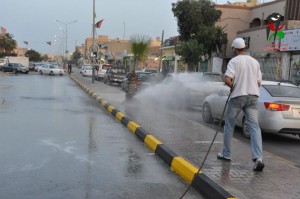
Sirte, meanwhile, saw the launch of the third installment of a far-reaching cleaning and planting campaign on Friday morning. Volunteers and employees from the public cleaning company, worked together to clean the coastal road leading into the town. Previously, local gardens near the Insurance Building and Sirte University were landscaped and cleaned.
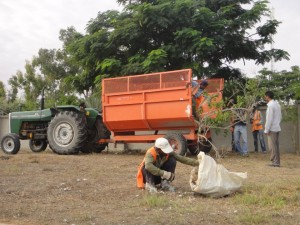
On Saturday, the civic group For You Benghazi I Take Initiative, in partnership with the Our Hands Foundation, organised a cleaning and planting campaign in major areas of Benghazi. The event enjoyed broad public support and volunteerism from the Red Crescent Youth Commission, and the local Boy and Girl Scouts. Prior to the scheduled clean up, an awareness movement was executed in various institutions and schools, to generate interest and educate youth on the importance of preserving the environment and keeping surroundings hygienic and litter free.
In August, Benghazi had received five new dustbin lorries to aid in the removal of refuse. Similarly in Tripoli, lack of lorries and labourers was the main reason why waste was not regularly removed. Across country, the need for an integrated solid waste management system and land fills, are still under discussion.
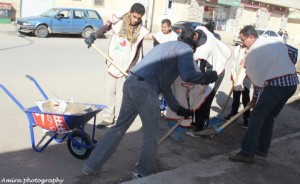
[/restrict]


